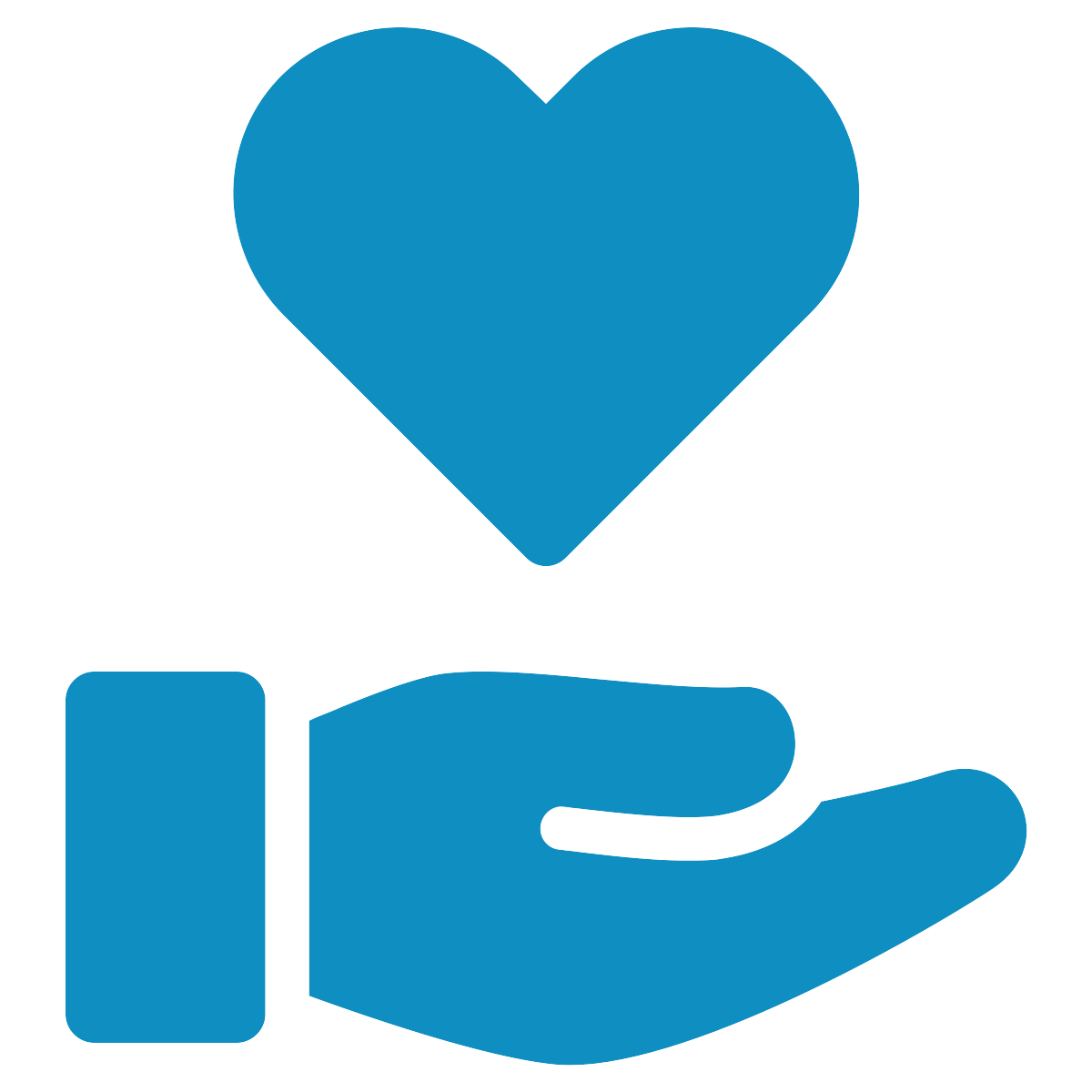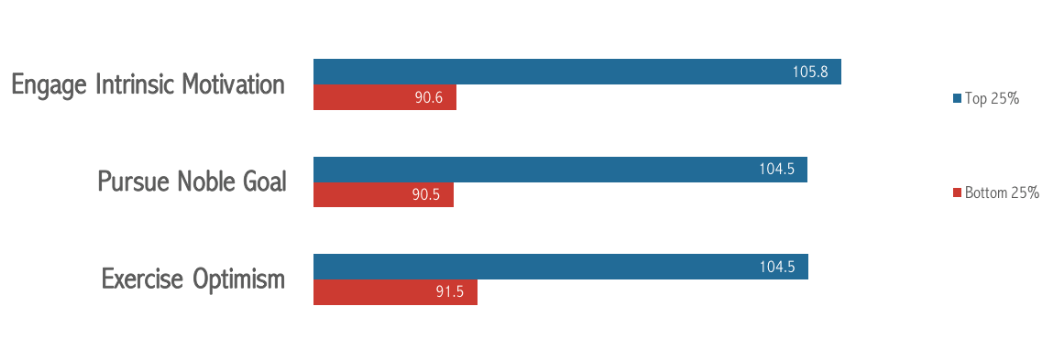Trust is essential to wellbeing. But look around today and we see we are smack in the middle of a trust crisis where social, healthcare, economic, media and political distrust imperil our organizations. I spoke with Stephen MR Covey, bestselling author of The Speed of Trust, about practical strategies to lead ourselves and our organizations out of this mess.
His father, Dr. Stephen R Covey, wrote that in all our relationships we have an “emotional bank account” and our interactions either increase or decrease the balance of trust and connection. Today, it may be harder than ever to grow that bank balance. Forces that seem to be beyond our control are draining all our trust bank accounts and diminishing wellbeing.
“Distrust and suspicion tend to create more distrust and suspicion,” says Covey, “creating a vicious, downward spiral that we’re living in today.” But he is adamant that we have choice: “There’s a better way to lead, there’s a better way to operate in today’s world, and it’s by leading with trust.”
How does it work? Stephen MR Covey shares three essential practices we can all use to increase trust and create wellbeing in our organizations, our leadership, and in our lives.
The summary:

#1 Take the risk to care because it unlocks human connection

#2 Be deliberate with intentions so you put purpose into action

#3 Strengthen integrity to increase your credibility

Break out of cycles of distrust
Take the risk to care
Covey describes the dynamics of risk aversion, saying, “If someone makes a mistake, you see it immediately and it’s magnified and it’s put on social media. People become a little bit more careful, more cautious, more guarded, more suspicious. We’re finding ourselves perpetuating a vicious cycle of distrust and suspicion, creating more distrust and suspicion because none of us want to get burned.”
In this context, we come to work. According to the latest Vitality research from Six Seconds, people are more stressed out than ever before, short on time, equanimity, and resources, and they swim like mad without moving very far.
The solution is to take much greater care in our communication. According to Covey, “You listen first. You demonstrate respect for what you hear. You clarify expectations, and you focus on and agree upon a mutual process for accountability to those expectations. That includes giving the why behind the what, in other words, declaring your intent.”

And, even more profound than this “carefulness” is genuine care.
Covey gave an example of a company where they asked senior leaders, “Do you genuinely care for the people you’re leading?” and asked the middle managers, “Do the senior leaders care about you?” The gap is stunning. “There was a 68-point gap, but who’s right? The senior team could actually care, but if their people don’t know it, feel it, experience it, believe it, it’s not there.”
What makes that gap? It could be that leaders don’t care, but more likely, it could be a misunderstanding of care — maybe the caring gets blocked. Blocked by a lack of skill (“I don’t know how to show it”), or a cultural context (“we don’t really talk about feelings here”), or maybe by being overly focused on minutiae?
Covey says that if leaders don’t actually care, that’s a deeper issue and requires more work to get to the heart. “Look, at the end of the day, the only sustainable approach in an interdependent world is mutual benefit which includes regard for the other person.
Anytime we’re interdependent, as opposed to truly independent, we have to have an agenda of seeking mutual benefit which includes a mutual regard, a mutual respect, and ultimately, hopefully, a mutual trust that has genuine caring at its core.”
“We can make a compelling business case as to why trust matters, just like you do, Josh, with emotional intelligence,” Covey asserts. He continues, “Caring gives us more trust, which leads to better financial outcomes. And, it’s a better way to live. It’s both the right thing to do and it’s the economic thing to do. Caring is the root of the intent that builds credibility and trust, and out of that grows both better performance outcomes, and a better world.”

Why before the what
Be deliberate with intentions
One of the biggest barriers to creating a caring connection is the crossed wires of communication. We can get past many missed opportunities, Covey says, by simply declaring our own intention and checking our assumptions.
In a world of distributed teams and relationships curated through social media, it’s increasingly difficult to connect. As Daniel Goleman described, these technology-mediated communications are “thin” – we don’t get the full human context. Perhaps that’s why researchers Primack and Miller, in a new study published in the American Journal of Preventive Medicine, found that youth who use the most social media are three times as likely to experience greater loneliness. No matter how much junk food we eat, it doesn’t turn into a healthy meal.
Particularly in a distributed workforce connecting through these thin channels, we get less contextual data, and it’s harder to be aligned and connected. As Covey notes “When you don’t declare intent, people make assumptions. They ascribe intent to you anyways, but they’re describing it based upon their fears or worst-case scenarios. At best, they are guessing, but at worst they’re projecting their fears.” The goal, Covey says, is to set up a relationship where people can come together with a shared understanding. “Our rule is this: no guessing. Instead, declare your intent. That means you give people the why behind the what.”

Direct communication is surprisingly challenging. As Brené Brown’s research shows, we protect ourselves from feeling vulnerable by hiding or distracting – but that doesn’t solve the problem. The only way through is forward, which is why vulnerability – sharing our real selves – is an act of courage.
“It takes risk, and it takes courage, and it takes good judgment. But we can create a better world. We can create better results and be happier, more joyful, more energized,” Covey says. And, he refers to Paul Zak’s research that reflects a growing body of evidence of a compelling business case for trust-based leadership.
Trust is a risk that takes vulnerability – which is another word for COURAGE -@EQjosh
Click to tweet
From Intention to Purpose
Covey’s advice on declaring intentions is well supported by research on the importance of clarifying purpose. It’s hard to declare your intention when you don’t know what it is. A recent Gallup-Healthways survey found that only 7% of employees are “thriving” in all five aspects of wellbeing (as they measure it):
Purpose: Liking what you do each day and being motivated to achieve your goals
Social: Having supportive relationships and love in your life
Financial: Managing your economic life to reduce stress and increase security
Community: Liking where you live, feeling safe, and having pride in your community
Physical: Having good health and enough energy to get things done daily
The survey also disclosed that under one-third of millennials are very comfortable talking about life outside of work with their manager, yet those who do have twice the employee engagement.
Six Seconds’ research concurs: clarity of purpose, or “living your why,” is one of the top factors driving individual wellbeing. Here are the three key emotional intelligence factors in wellbeing:
Don’t just coordinate, collaborate – starting with a positive assumptions
Anabel Jensen, Six Seconds’ Founding President, once said to me, “We can’t be nonjudgmental. Our brains are wired to continuously make judgments.” What we can do is notice the assumptions we’re making, and reopen the case by staying curious. Covey says we can go a step further. Given our brain’s innate tendency to make assumptions, why not start with a positive assumption?
Covey goes on to say, “If we learn to assume positive intent as a starter in any interaction, we’ll see the world in a different light. I learned this from Indra Nooyi, the CEO of PepsiCo, one of the great leaders I’ve met. She said the single greatest learning in her life was something she learned from her father, and that is this: to always assume positive intent.”
Covey points out the power of this simply-profound shift: When we assume positive intent, we unlock collaboration. “Imagine this Joshua, two leaders working together: one declaring their intent, the other is assuming positive intent. Just imagine how much farther and faster they will go. They’ll build trust – and therefore be able to truly collaborate. Because without trust you don’t collaborate, you merely coordinate.”
According to the most recent Six Seconds State of the Heart Report, across 127 countries, collaboration is the most quickly declining of the 18 key talents measured. Perhaps this decline in collaboration is directly linked to research findings on decreasing trust. It makes practical steps like Assume Positive Intent even more rare and valuable.

Finding integrity
Build trust by increasing credibility
I asked Covey about his father’s 7 Habits, and which was the most challenging. He told me, “Being proactive and taking responsibility is so foundational.” Stephen R Covey called this Habit 1, which is about taking ownership of your own choices, and therefore your own life. In the Six Seconds Model of Emotional Intelligence, we call this Choose Yourself.
As Stephen MR Covey explains, “It’s very easy to find myself getting reactive and not making a space between stimulus and response. Then I remember: I can step back and choose my response.” The key, he says, is to remember, “I’m not a product of what happens to me. I have a space, I can choose. I come back to that all the time.”

While Stephen R’s 7 Habits are profound, Stephen MR says the greatest lesson wasn’t what was in the book. It’s the way his dad served as a role model. “Sometimes he would fall short, like all of us. But what made the biggest impact on me was seeing these principles modeled, I saw my father teach these on stage, but even more, I saw them in his life. Sometimes someone can be a great speaker in front of a group and they just wow an audience, and yet when they walk off stage they’re like a different person in terms of how they treat people.”
Covey reflected, “Maybe the kindest and most accurate tribute I can pay to my father, and really my key learning from him, is that as good as my father was in public, as an author and as a teacher (and he was very good), he was even better in private. He was good on stage, and he was even better off stage.” “He had genuine integrity,” Covey continues, “meaning that he lived what he taught. Maybe that’s the single greatest learning I gained from him. Yes, I learned the principles, but more importantly, I learned integrity, which is being true to those principles — especially when no one sees, and especially when there’s a cost or a consequence to it. That’s the test. Until then we haven’t truly been tested. That’s where my father was at his best.”
Of course, that is also central to trust. The core, Covey notes, is, “Real integrity that builds credibility. It builds trust because there’s no gap between what you say and what you do. I learned that from him.”
Get the Business Case for EQ eBook Free

Putting the Pieces Together
“We’re seeing the reciprocity of distrust continue and perpetuate,” Covey says. “It tends to spread. It’s a dangerous pattern and we have to counteract it. We need leaders that know how to create trust wisely in this low-trust world.”
How? Covey identifies three key ingredients that flow from our character: Intention, Caring, and Integrity. He also identifies two key ingredients of trust that flow out of our competence: Capabilities (our relevance) and Results (our track record of performance). However, it’s not enough to “have” these; the real trick, Covey says, is putting them into our behavior.
As Covey maintains, “You can’t talk your way out of a problem you behaved your way into – but you can behave your way out.” He emphasizes that despite all our technology and today’s complexities, humans are still much the same. He puts it this way, “the principles that build trust are still the same, they’re about credibility and behavior.” Which means the basic skills of emotional intelligence are becoming even more important. We need to strengthen our “core muscles” to take the right action, even though it’s hard. Especially because it’s hard.
Covey says he’s so committed to working on trust “because, like your research shows, it’s a missing piece today. It’s foundational to everything we’re trying to do as leaders, as teams in these organizations. You really can’t have long-term success without trust. The best relationships are those in which people can trust each other. The best culture is where there’s high trust.”
Perhaps most importantly, Covey reminds us that trust is something we can increase. “My main message in Speed of Trust is that trust is learnable,” he says. “It’s a competency that we can learn and create from the inside out. Meaning, we first start with ourselves and we look in the mirror, and then we ripple out to our relationships, then to our teams, then to our organization, then to our external stakeholders, then to all society. It’s an inside-out process.”
In all aspects of work and life, trust is a barometer of wellbeing. As Covey says, “If people can trust each other, it’s like a multiplier effect for everything else that they’re doing.” He continues, “Their ability to collaborate goes up, to partner goes up, to create great high-performing teams goes up when there’s trust. Their ability to attract people, to retain people, to engage people goes up when there’s trust. Their ability to execute their strategy with speed goes up when there’s trust. Their ability to innovate, to value differences and diversity, goes up when there’s trust.”
Stephen MR Covey’s bottom line: “Almost anything you need to do, you can do better when you start with trust. You can do it better, you can do it faster, and you can learn to make this happen.”
What’s new in emotional intelligence?
Gen Z Is Unlike Any Generation Before It. New Research Reveals Why – and How to Work More Effectively with the iGen
Here are 3 key insights from the world’s largest study of emotional intelligence, and what it means for working effectively with Zoomers.
Emotional Intelligence at Work: Stress Is (Still) Rising Globally. Here Are 3 Evidence-Based Solutions
Globally, 44% of employees globally reported feeling stressed A LOT of the day yesterday. Here are 3 solutions to reduce stress.
Emotional Intelligence at Work: 3 Steps to End Meeting Madness and Its Emotional Toll
The modern workplace has a meeting problem, and it takes an emotional and financial toll on people. Here are 3 steps to restore sanity.
Emotional Intelligence at Work: 7 Principles to Rewrite the Unwritten Rules of Expressing Emotions
An organization’s emotional culture influences employee satisfaction, burnout and the bottom line. Is it time to rethink your rules?
Emotional Intelligence at Work: Why Traditional Performance Reviews Often Backfire – and 6 Principles to Follow Instead
Not a fan of performance reviews? You’re not alone. Here’s why the annual performance review doesn’t work – and what to do about it.
Building Inclusion Across Borders: Three Lessons from Make-A-Wish Foundation’s DEI Launch
Six Seconds and Make-A-Wish launch a pilot DEI program in Europe fueled by emotional intelligence – with promising results.
- Knowing Isn’t Coaching: Three Emotional Intelligence Tools for Professional Coaches - April 3, 2024
- Coaching Down the Escalator: 3 Emotional Intelligence Tips forCoaches to Reduce Volatility & De-escalate Conflict in a Polarized World - March 6, 2024
- Dr. Daniel Goleman Explains the History of Emotional Intelligence - February 29, 2024









Trust and Risk hand in hand. Great
Could you please provide me latest materials on Emotional Intelligence?
Hi GP, yes, sure! What do you need? Start here: http://www.6seconds.org/emotional-intelligence and http://www.6seconds.org/case